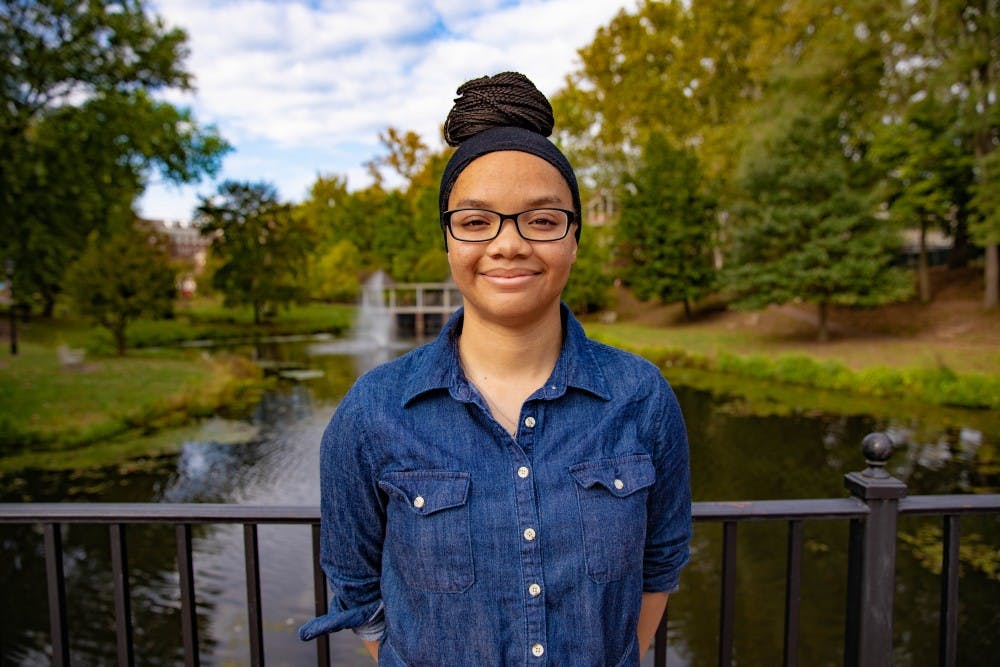In recent events, we’ve seen the vivid, horrific images and video footage of the systemic injustice and inequality plaguing our nation.
We have also seen groups come together to address those issues.
The various, ongoing social justice movements address gun violence, climate change, sexual harassment, wealth inequality and police brutality. Each of those movements strategically defines who will represent the affected group to ensure change. However, within these movements, there is a lack of advocacy for the unfairness and brutality of Black women. The disenfranchisement, prejudice and violence against Black women have not drawn the same public outrage and attention as other minority groups.
For example, the Black Lives Matter movement has garnered the attention of police brutality against Black men. But Black women have also died at the hands of police officers or while in custody. Police killed Sandra Bland, Eleanor Bumpers, India Kager, Alberta Spruill and most recently, Breonna Taylor. In 2010, 7-year-old Aiyana Stanley-Jones was shot in the head by police officers while sleeping in her grandmother's living room. Why are these lives not part of the conversation?
Interestingly, the Black Lives Matter movement was co-founded by three Black women: Patrisse Cullors, Alicia Garza, and Opal Tometi, after the 2013 acquittal of the murderer that shot 17-year-old, Trayvon Martin. The foundation of the movement was for local communities to intervene and eliminate the systematic violence and racism inflicted on Black people. Michael Brown, Eric Garner, Freddie Gray, and Tamir Rice were killed by the police, which ignited protests and outrage throughout the country. Most recently, the world watched as a police officer murdered George Floyd.
As protestors march for George Floyd, and every other Black man senselessly killed, there has been a shift in the movement as people begin to acknowledge Black women's experiences with police violence. The 2014 hashtag “Say Her Name” was lost in translation, receiving little to no media coverage or attention. There have been instances where justice for black women has turned into a meme and a forgotten trend. For example, some will post an explicit picture of themselves on social media and then caption it "Now that I have your attention, arrest the cops who killed Breonna Taylor." These memes overshadow that at the hands of law enforcement Breonna Taylor was murdered and that those officers have not been held accountable.
These memes and trends are harmful to all Black women because it creates the impression that we are not important enough. Megan Thee Stallion, a Black woman and star in the music industry, was shot by a Black man and singer, Tory Lanez. Although this was not a police shooting, the disrespectful memes and disregard for her were examples of how Black women are disrespected. This causes a concern for all women because it gives the impression that Black women's lives are devalued. Memes are not why Black women have not seen justice, but it brings to light how there is little to no regard for Black women’s lives. Another example is the hashtag Mute R Kelly, and he was a sexual predator for decades to young black girls before he was held accountable.
When joining the movement to demand justice for Rekia Boyd, Shelly Frey and others, all groups should include Black women and take the time to understand their experiences. For some, it can be difficult to understand other identities and cultural differences. However, people need to take the time to listen and educate themselves on the disparities that all groups face making impactful change.
Within all movements, the idea of inclusivity is important. Inclusivity ensures that no one group is left out of the fight for change. For example, within the suffrage movement, women finally got the right to vote on August 26, 1920; however, Black women could still not vote. Once all movements adopt this idea of inclusivity, justice for all can be achieved, benefiting society.
Iana Fields is a sophomore studying English creative writing at Ohio University. Please note that the views and opinions of the columnists do not reflect those of The Post. Want to talk to Iana? Tweet her @FieldsIana.






